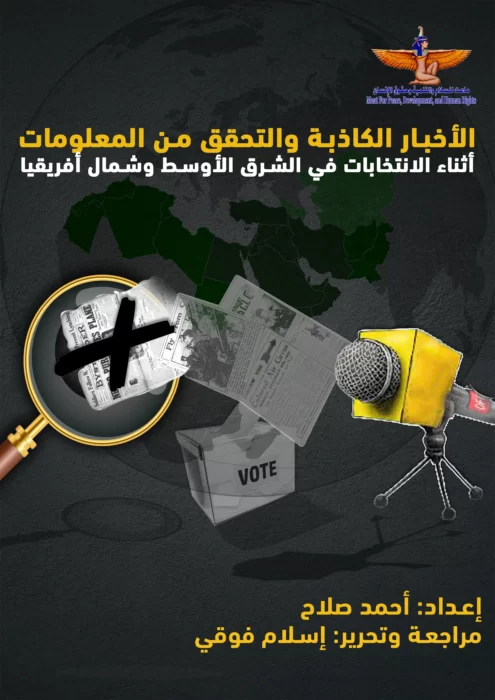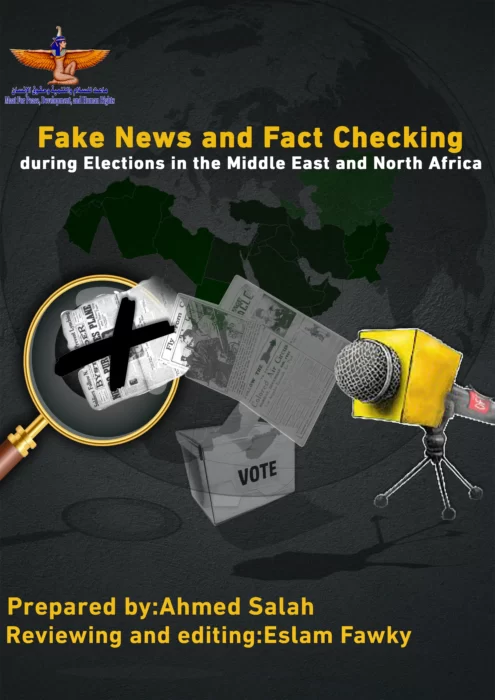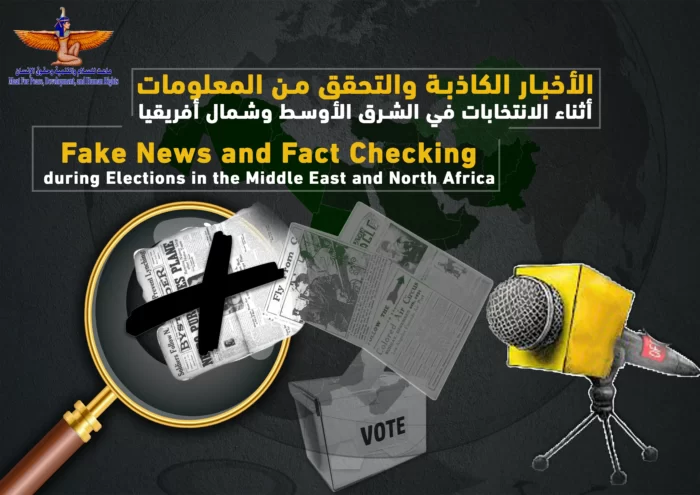Democratic practices are filled with many illegal and immoral practices, especially with the intensification of competition between candidates. Opposition seek to destroy each other, and exploit personal issues in the electoral struggle with the aim of misleading voters, destroying the reputation of the other opposition, and bringing him down in the electoral battle, especially since the voters have the power to topple any candidate if the opposing party succeeded in spreading misleading news about him or tarnishing his reputation, especially at the critical stage in the elections few days or hours before the polling process.
Information manipulation is a set of tactics that involve the collection and dissemination of information in order to influence or disrupt democratic decision-making. Information manipulation can exploit traditional information channels such as television, print or radio broadcasts, in addition to social media platforms, through various actors and the use of a variety of From tactics to distributing different types of content, these tactics are used by parties and candidates to discredit competitors, and to manipulate political discourse in a way that advances their agenda. These tactics can also be used by domestic and foreign governments, commercial actors and non-independent media.
Candidates' smear campaigns are a well-known pre-election phenomenon that exists in all countries, including democratic States, where fake news is spread to reduce the value of competitors in a morally unacceptable way, which involves encroachment on personal freedoms and interference in private life that is always contested by competitors, under the contenders' weakness and inability to compete through electoral ideas and platforms.
In general, the campaigns of distortion and disinformation during elections emerge at a time when the electoral conflict is most intense and represent opportunities for people and political currents to come to power. It also increases when the elections are a crucial stage for the survival of a president or a political party in power; while these practices decrease when the elections are equal or their results tend towards a specific candidate or party. Therefore, it can be said that the fake news and disinformation campaigns reflect the strength of the electoral battle and the extent to which it is a critical stage for the country in which it is taking place.
The phenomenon of these campaigns is widespread in presidential elections more than in parliamentary elections, in which competition is on the scale of small circles, and the level of distortion and misleading in it is limited to the people of the constituency, but in the presidential election, disinformation campaigns are influential for the State itself, and misleading news and smear campaigns spreads to the opposition at the State level and even beyond as the parties to the conflict and their supporters try to influence of the candidates for the outcome to their advantage. This paper deals with the impact of fake news and disinformation on elections and thus the assault on democracy.

 |
 |
shortlink: https://maatpeace.org/en/?p=37884












